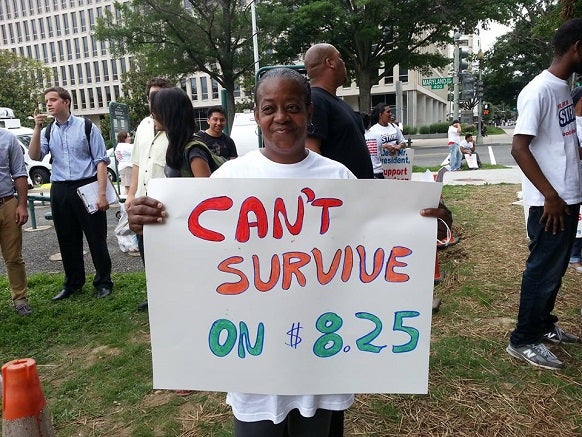News
Wage Gap Becomes Unscalable Ravine for Too Many

Income inequality, already a significant issue for the nation’s workers before the coronavirus pandemic outbreak, has exploded in recent weeks due to tens of millions of U.S. workers who have lost their jobs. And even once more people return to work, the wage gap is unlikely to improve significantly.
The Federal Reserve Bank last week reported that nearly 40 percent of low-wage workers lost their jobs in March, bearing the brunt of the economic fallout. That compares to 13 percent of those who make more than $100,000 a year. A big difference is that those who earn more are much more likely to be able to work from home than those who earn the least.
Additionally, the Bureau of Labor Statistics found that the share of couples where only one member has a job grew from 32 percent in April 2019 to 38 percent in April 2020, while households in which both have a job fell from 63 percent to 51 percent. The last time only 51 percent of U.S. couples were both employed was in 1982, a period when women were 24 percentage points less likely to work than men, compared to 11 percentage points less likely today.
As a result, working-class Americans are much more likely to find themselves in financial peril. Less than a quarter of low-wage workers have money saved to get them through unemployment, according to a Pew Research Center study. As a result, 53 percent said they will have trouble paying their bills.
The CARES Act, passed in late March, expanded unemployment benefits by $600 a week through late July. But there is good reason to believe that won’t be long enough to get a sizeable chunk of the workforce – especially those at the lower end of the pay scale – back on track. So it’s good that the HEROES Act legislation that passed the House last week would extend that benefit through the end of the year.
But any legislative fix currently being discussed is not addressing the underlying causes of economic inequality in this country. “To have any chance of emerging on a stronger footing as a nation with less economic inequality and more sustainable economic growth, policymakers need to enact a robust set of protections that will ensure high-end inequality is contained, build counterweights to concentrated power, and provide economic security for all now and going forward,” the Washington Center for Equitable Growth wrote in a new report. That means increasing unionization, among other things, it reads in part.
Workers can’t be sure of the road ahead. It’s fair to say that at the least, it will be bumpy. But lawmakers have an opportunity to craft a path forward that can bring greater certainty, especially for the least among us. They must seize on the opportunity before them.